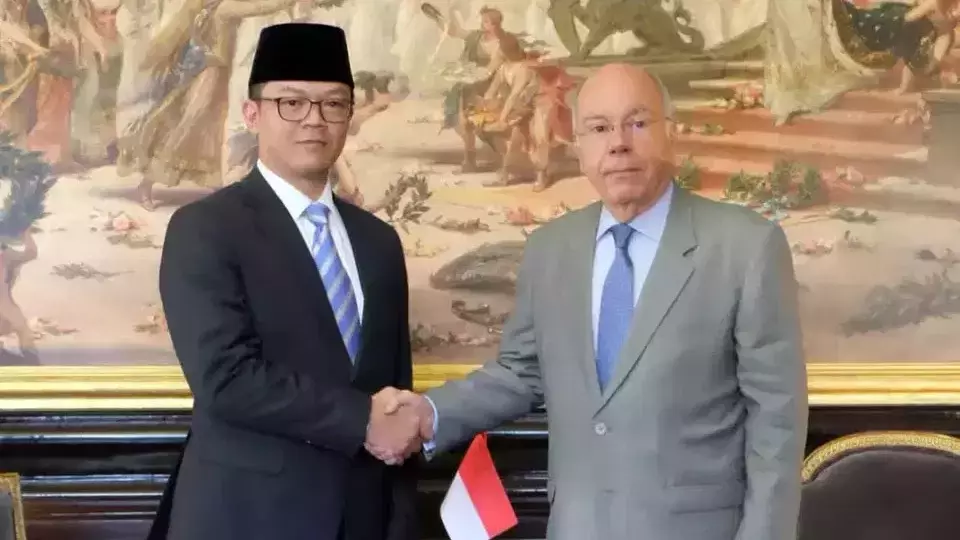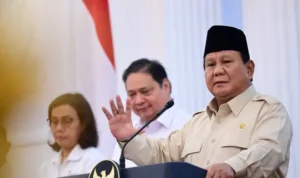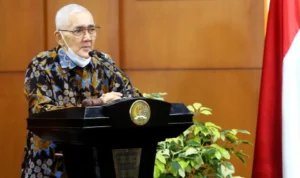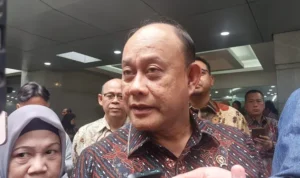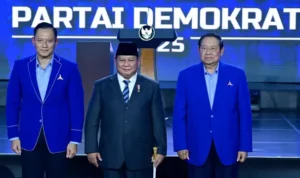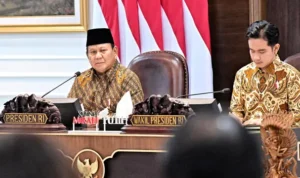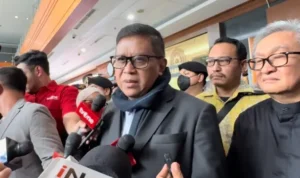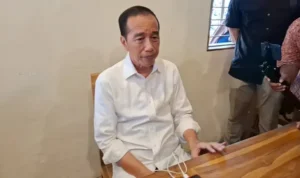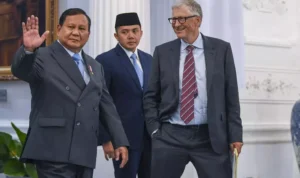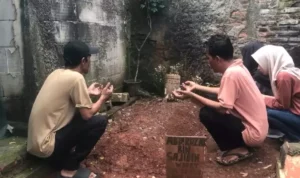INDONESIAUPDATES.COM, News En – Indonesia’s Minister of Foreign Affairs (Menlu), Sugiono, recently met with his Brazilian counterpart, Mauro Vieira, in Rio de Janeiro, where they discussed cooperation on several key issues, including food security and health services. One of the main topics was Indonesia’s ambitious free nutritious meal (MBG) program, which is set to provide meals to over 80 million people daily, including children and pregnant women.
During the meeting, Sugiono emphasized the alignment of priorities between the two countries, particularly in the areas of human resource development. The conversation focused on the potential for collaboration, with the two ministers highlighting the importance of distributing free nutritious meals to schoolchildren as part of these efforts.
Cooperation on Food Security and Human Development
The meeting also touched on broader cooperation between the two nations in sectors such as energy, education, and health. Both ministers underscored the shared goals of improving food security and strengthening public health, especially through programs that support the nutritional needs of the population. However, there was no official mention of whether Brazil would directly assist Indonesia with its food distribution efforts.
Brazil has been running a similar school meal program since 1955, which currently serves 40 million students every day. President Prabowo Subianto, during a visit to Brazil last year, expressed Indonesia’s interest in learning from Brazil’s experience with school meals. He sent a team to observe how Brazil has managed its successful program and applied those lessons to Indonesia’s MBG initiative.
Prabowo’s Vision for Combating Stunting and Economic Growth
President Prabowo, who has been a vocal advocate for the free nutritious meal program, has emphasized its potential to address stunting in children, a major health concern in Indonesia. He also views the program as a critical tool for boosting the country’s economy by improving the overall health and productivity of the population. The program aims to provide consistent and nutritious meals, contributing to better educational outcomes and a healthier future generation.
In January 2025, the Indonesian government officially launched the free nutritious meal program with an initial budget of Rp 71 trillion for the first year. The program’s scope is expected to expand significantly, with the government planning to increase the budget to Rp 171 trillion in the coming years to reach more people and extend its impact.
Expanding Indonesia’s Global Engagement
Sugiono’s trip to Rio de Janeiro also included participation in the BRICS foreign ministers’ meeting. The BRICS group, originally comprising Brazil, Russia, India, China, and South Africa, has grown to include Iran, Egypt, the UAE, Ethiopia, and, most recently, Indonesia. Sugiono’s visit underscores Indonesia’s growing role in global diplomacy, particularly in areas like food security, which has become a focal point in international discussions on sustainable development and human welfare.
The free nutritious meal program, while still in its early stages, is poised to become a cornerstone of Indonesia’s development agenda. With collaboration from countries like Brazil, the program has the potential to significantly enhance Indonesia’s efforts to tackle malnutrition, support economic growth, and improve the well-being of millions of Indonesians.
Frequently Asked Questions (FAQ) on Indonesia’s Free Nutritious Meal Program
1. What is Indonesia’s Free Nutritious Meal (MBG) program?
The Free Nutritious Meal (MBG) program is an initiative by the Indonesian government to provide daily nutritious meals to over 80 million people, including children and pregnant women. The program is designed to address malnutrition and improve public health outcomes, particularly among vulnerable populations.
2. Who is responsible for implementing the MBG program?
The program is being implemented by the Indonesian government under the leadership of President Prabowo Subianto. The Ministry of Foreign Affairs, along with other governmental bodies, is involved in the program’s planning and coordination.
3. What are the goals of the MBG program?
The MBG program aims to reduce stunting among children, improve overall nutrition, and support economic growth by ensuring that people, especially schoolchildren, receive nutritious meals regularly. It is also seen as a way to promote human resource development through improved health and education outcomes.
4. When did the MBG program officially launch?
The MBG program was officially launched in January 2025 with an initial budget of Rp 71 trillion. The program’s budget is expected to increase to Rp 171 trillion to extend its scope and reach more beneficiaries.
5. How many people will benefit from the MBG program?
The program is expected to provide free nutritious meals to over 80 million people daily, including schoolchildren, pregnant women, and other vulnerable groups.
6. Why is the Indonesian government consulting with Brazil on this program?
Brazil has run a similar school meal program since 1955, serving 40 million students daily. Indonesia is seeking to learn from Brazil’s experience and expertise in managing large-scale school meal programs to improve its own MBG initiative.
7. What is the role of Brazil in the MBG program?
While details of direct cooperation have not been finalized, Brazil’s experience with its successful school meal program is seen as a valuable resource for Indonesia. Minister Sugiono discussed potential areas of cooperation with Brazil’s foreign minister, focusing on food security, energy, education, and health services.
8. How is the Indonesian government funding the MBG program?
The government has allocated an initial budget of Rp 71 trillion for the first year of the MBG program. Plans are in place to increase the budget to Rp 171 trillion to expand the program and ensure it reaches a wider population.
9. How does the MBG program align with Indonesia’s broader development goals?
The MBG program is part of a broader effort by President Prabowo Subianto’s administration to tackle issues like stunting, malnutrition, and poverty. It aims to improve health, enhance educational outcomes, and foster economic growth by investing in the nation’s human capital.
10. How will the MBG program impact the economy?
By improving nutrition and reducing stunting, the MBG program is expected to enhance the productivity and health of the population. Healthy children are more likely to perform better in school, grow into productive adults, and contribute to the country’s economic development.
11. What other countries are involved in the BRICS group?
BRICS is a group of emerging economies that originally consisted of Brazil, Russia, India, China, and South Africa. The group has since expanded to include Iran, Egypt, the UAE, Ethiopia, and most recently, Indonesia. The inclusion of Indonesia in the BRICS group underscores the country’s growing role in global diplomatic and economic affairs.
12. What are the next steps for the MBG program?
As the MBG program continues to expand, the Indonesian government plans to increase funding and extend its reach. Ongoing cooperation with countries like Brazil and other international partners will help ensure the program’s success and scalability.
FOLLOW INDONESIAUPDATES.COM ON GOOGLE NEWS

